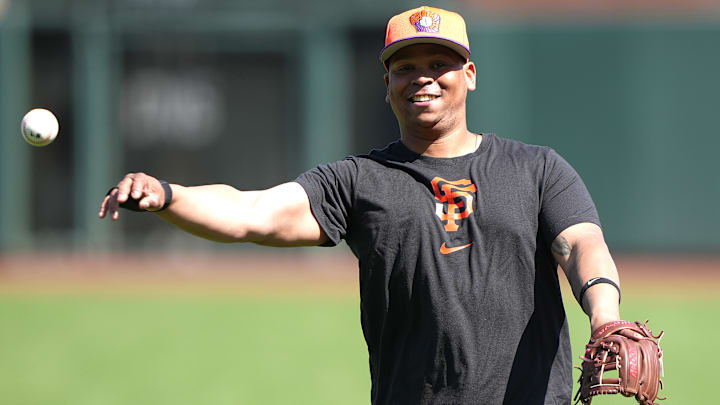In the lead-up to the Boston Red Sox's June 15 trade of Rafael Devers to the San Francisco Giants, fans were under the impression that he refused to play first base for Boston. On June 17, Peter Abraham of The Boston Globe reported the opposite.
Abraham posted on BlueSky that Devers was willing to play first base for the Red Sox, but only if they committed to him as the first baseman moving forward. Obviously, the team refused. But why?
The Red Sox won't have an everyday first baseman until Triston Casas returns from his season-ending injury or they trade or sign one at the deadline or in the offseason. But moving Devers there would have immediately filled their vacancy and given him months to work on improving his defense before the postseason.
Casas doesn't seem like a real obstacle here, considering the severity of his injury and multiple offseason trade rumors about him. Casas ruptured a patellar tendon as he ran out a ground ball in May, and is expected to make a full recovery, but it will take over a year. He also wasn't having a productive season at the plate before the injury. He slashed .182/.277/.303 over 29 games with negative two outs above average at first base. Devers could easily perform to that level, or better, on defense, since first base is easier than his natural position across the diamond.
Rafael Devers was willing to play first base for Red Sox if they gave him the position long term, according to The Boston Globe
The Red Sox also tried to trade Casas away over the winter and clearly had plans to move on from him. Casas is one of the most chronically injured players on the roster and his absences aren't his fault, but Boston didn't sign or trade for a backup at one of its weakest positions when it very well could've.
The Red Sox's relationship with Devers has been described as "untenable" in the wake of the trade. His willingness to move to first base permanently doesn't sound unreasonable or selfish from the outside, especially because Boston knew he wasn't going to be a third baseman forever. But instead of working and compromising with the face of their franchise, to whom they made a 10-year commitment, the Red Sox would've rather had the freedom to jerk Devers around whenever they wanted.
Devers signed with the Red Sox when he was 16. He saw the team trade away or disrespect all his old teammates and actively avoid signing top-tier talent for the first two years of his extension, despite constant verbal assertion of a commitment to winning. God forbid he ask for consistency from his employer.
